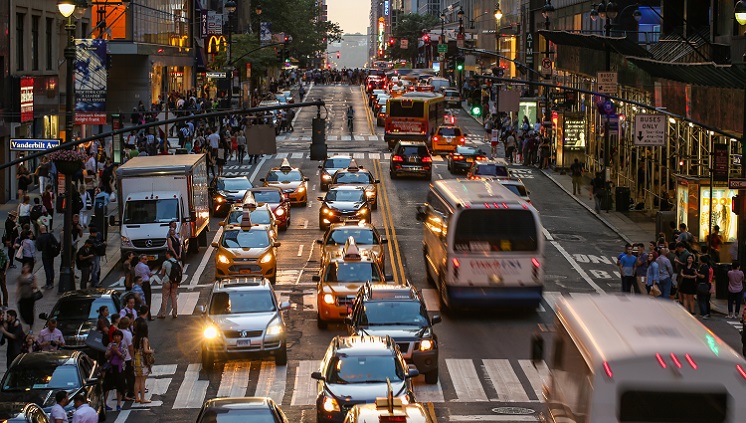Noise pollution

What Is Noise Pollution?
Noise pollution is generally defined as regular exposure to elevated sound levels that may lead to adverse effects in humans or other living organisms. According to the World Health Organization, sound levels less than 70 dB are not damaging to living organisms, regardless of how long or consistent the exposure is. Exposure for more than 8 hours to constant noise beyond 85 dB may be hazardous. If you work for 8 hours daily in close proximity to a busy road or highway, you are very likely exposed to traffic noise pollution around 85dB.
This type of pollution is so omnipresent in today’s society that we often fail to even notice it anymore:
- street traffic sounds from cars, buses, pedestrians, ambulances etc.
- construction sounds like drilling or other heavy machinery in operation
- airports, with constant elevated sounds from air traffic, i.e. planes taking off or landing
- workplace sounds, often common in open-space offices
- constant loud music in or near commercial venues
- industrial sounds like fans, generators, compressor, mills
- train stations traffic
- household sounds, from the television set to music playing on the stereo or computer, vacuum cleaners, fans and coolers, washing machines, dishwashers, lawnmowers etc.
- events involving fireworks, firecrackers, loudspeakers etc.
- conflicts generate noise pollution through explosions, gunfire etc. The dysfunctions, in this case, are likely caused by the conflict and insecurity and less by the noise pollution in itself, although that compounds stress levels too.
Human Diseases Caused by Noise Pollution
Whether we realize we are subjected to it or not, noise pollution can be hazardous to our health in various ways.
- Hypertension is, in this case, a direct result of noise pollution caused elevated blood levels for a longer period of time.
- Hearing loss can be directly caused by noise pollution, whether listening to loud music in your headphones or being exposed to loud drilling noises at work, heavy air or land traffic, or separate incidents in which noise levels reach dangerous intervals, such as around140 dB for adult or 120 dB for children.
- Sleep disturbances are usually caused by constant air or land traffic at night, and they are a serious condition in that they can affect everyday performance and lead to serious diseases.
- Child development. Children appear to be more sensitive to noise pollution, and a number of noise-pollution-related diseases and dysfunctions are known to affect children, from hearing impairment to psychological and physical effects. Also, children who regularly use music players at high volumes are at risk of developing hearing dysfunctions. In 2001, it was estimated that 12.5% of American children between the ages of 6 to 19 years had impaired hearing in one or both ears
- Various cardiovascular dysfunctions. Elevated blood pressure caused by noise pollution, especially during the night, can lead to various cardiovascular diseases.
- Dementia isn’t necessarily caused by noise pollution, but its onset can be favored or compounded by noise pollution.
- Psychological dysfunctions and noise annoyance. Noise annoyance is, in fact, a recognized name for an emotional reaction that can have an immediate impact.
Effects of Noise Pollution on Wildlife and Marine Life
Our oceans are no longer quiet. Thousands of oil drills, sonars, seismic survey devices, coastal recreational watercraft and shipping vessels are now populating our waters, and that is a serious cause of noise pollution for marine life. Whales are among the most affected, as their hearing helps them orient themselves, feed and communicate. Noise pollution thus interferes with cetaceans’ (whales and dolphins) feeding habits, reproductive patterns and migration routes, and can even cause hemorrhage and death.
Other than marine life, land animals are also affected by noise pollution in the form of traffic, firecrackers etc., and birds are especially affected by the increased air traffic.
Social and Economic Costs of Noise Pollution
The World Health Organization estimates that one out of three people in Europe is harmed by traffic noise. More than the purely medical effects of noise pollution on the individual, there is a significant social and economic impact. Since noise pollution leads to sleep disturbance, it affects the individual’s work performance during the day, it leads to hypertension and cardiovascular disease and costs the health system additional time and money, and it negatively affects school performance in children.
Tips for Avoiding Noise Pollution
- Wear earplugs whenever exposed to elevated noise levels
- Maintain a level of around 35 dB in your bedroom at night, and around 40 dB in your house during the day
- If possible, choose your residential area as far removed from heavy traffic as you can
- Avoid prolonged use of earphones, especially at elevated sound levels
- If possible, avoid jobs with regular exposure to elevated sound levels
